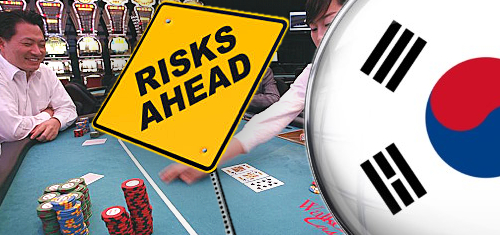 South Korea’s foreigners-only casinos are expected to report a downturn in Q4 but the lone casino to accept local gamblers will continue to print money.
South Korea’s foreigners-only casinos are expected to report a downturn in Q4 but the lone casino to accept local gamblers will continue to print money.
A new report by Morgan Stanley Research says South Korea’s 16 foreigners-only casinos will report depressed Q4 revenues thanks to the continued thinning of the herds of Chinese high-rolling gamblers that used to sweep majestically across Asian casino jurisdictions.
Morgan Stanley had previously projected that extra competition from the splashy new integrated resorts currently under construction in South Korea coupled with China’s worsening economy would “compress margins” at foreigners-only casinos between 2015 and 2018.
In a report issued on Friday, the analysts take an equally pessimistic view of the short term. Paradise Co Ltd, the country’s largest foreigners-only casino operator, is expected to report Q4 revenue up 5% year-on-year, although the analysts cautioned that this was due to an “abnormally high hold rate” at its gaming tables, as total betting turnover is believed to be down 25% (and Chinese VIP turnover down 39%).
Things were grimmer at Grand Korea Leisure’s three casinos, which are expected to report a collective 18% decline in Q4 revenue. A suspension of direct marketing to China has contributed to a 57% fall in Chinese VIP turnover while, paradoxically, the cost of attracting VIPs is going up as operators are forced to offer better perks.
By comparison, Kangwon Land, the only Korean casino allowed to admit locals, is expected to see revenue rise 7% year-on-year, with an 11% gain in mass market revenue helping to offset a flat VIP business (which is impressive simply for not being in negative territory).
The vulnerability of the South Korean casino industry’s reliance on foreign gamblers – particularly from China – was exposed last year after a fatal outbreak of Middle East Respiratory Syndrome caused tourism rates to plummet.
These problems were exacerbated after Chinese authorities (a) arrested South Korean nationals for organizing casino trips, (b) accused casinos on South Korea’s Jeju Island of using prostitution as bait for horny Chinese gamblers and (c) launched Operation Chain Break to disrupt agent networks working in China to promote “foreign casino activities.”
